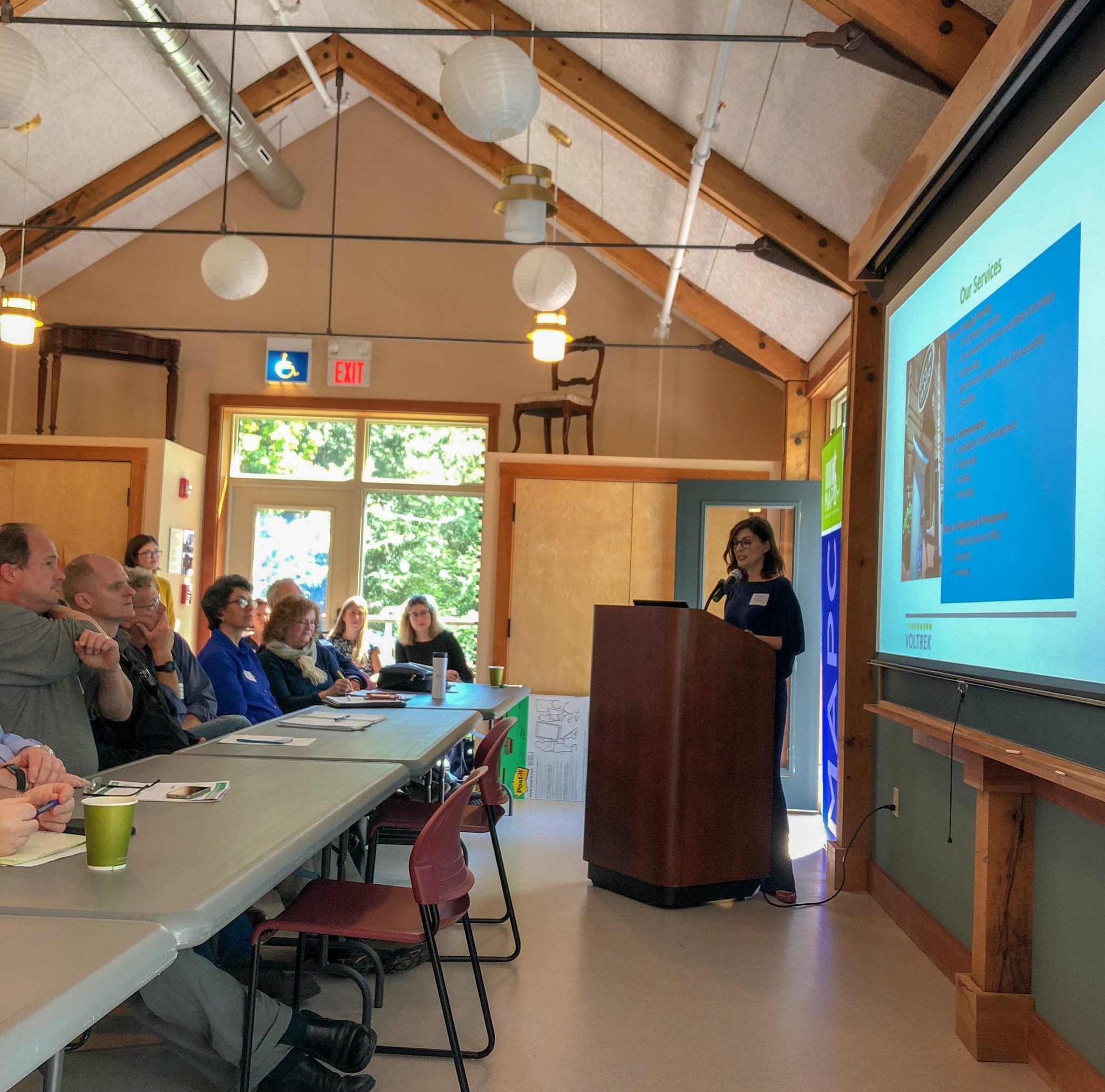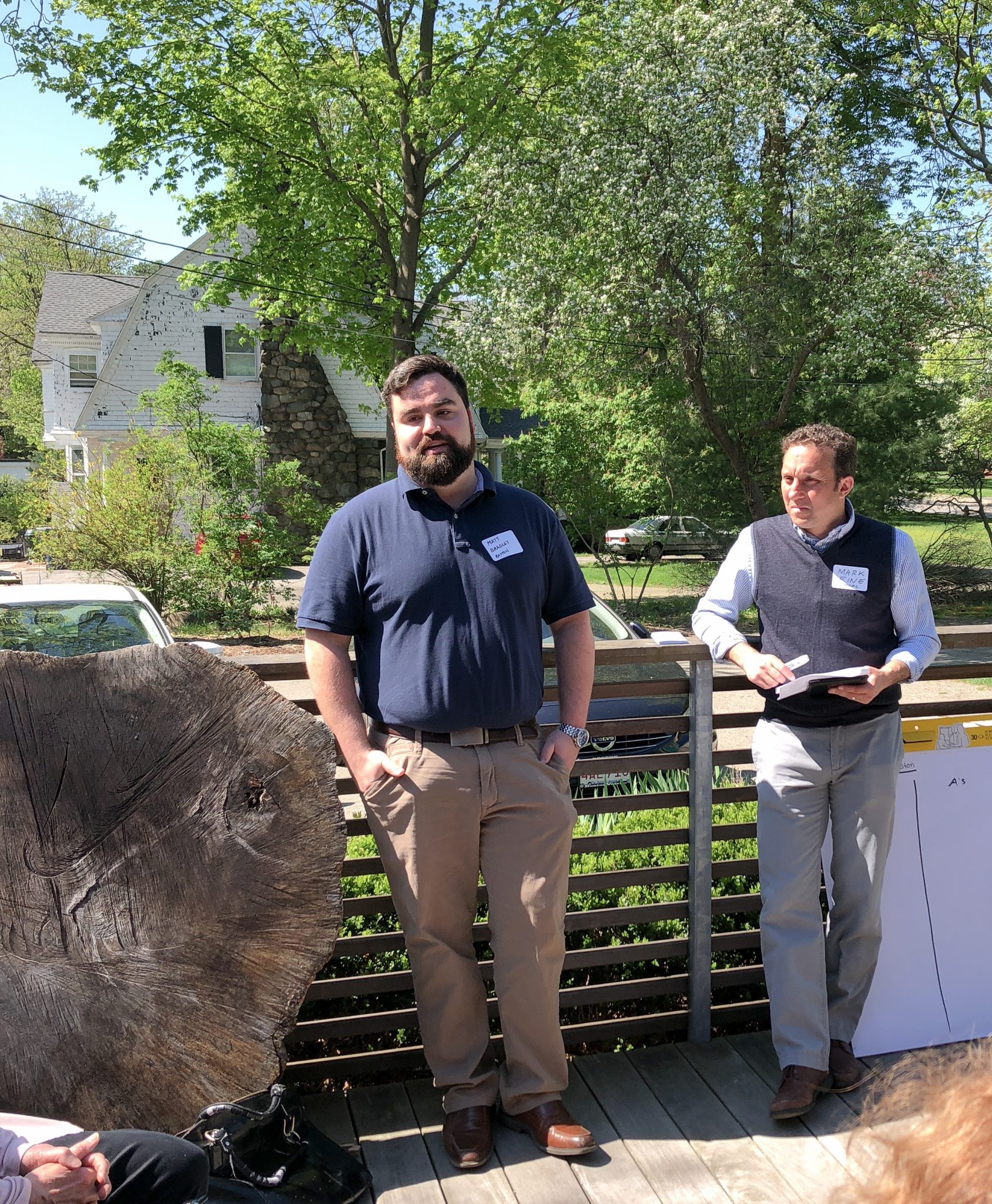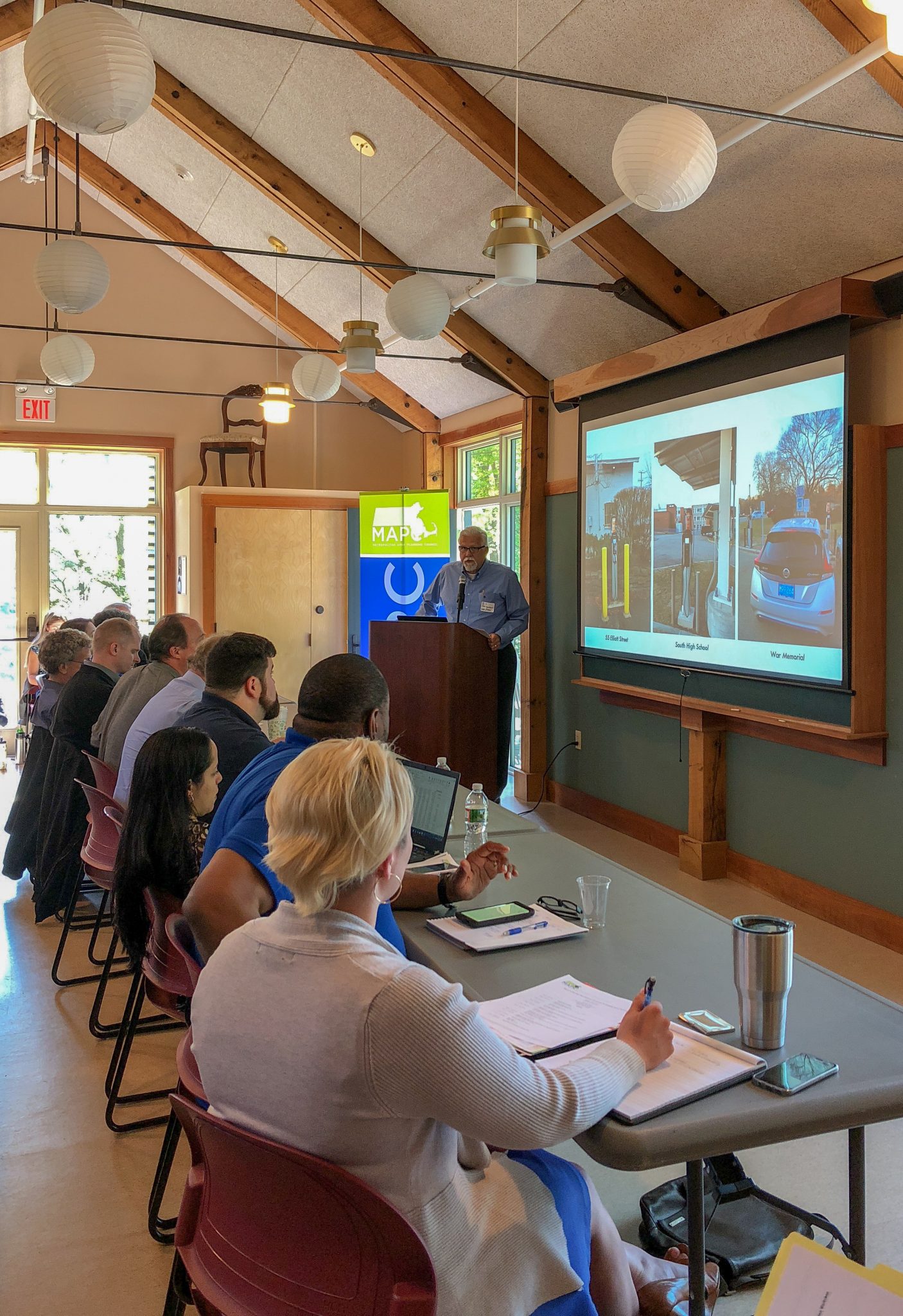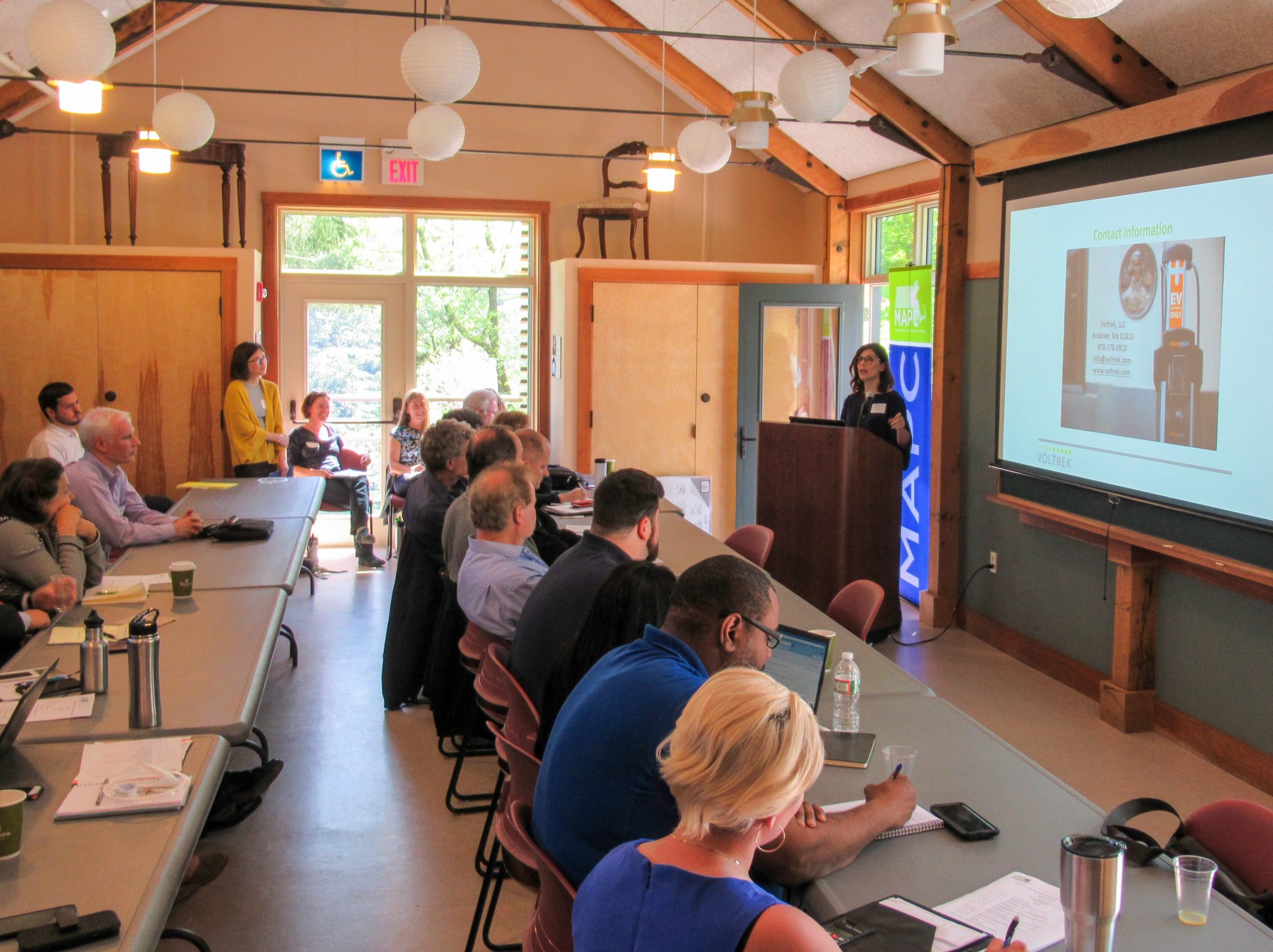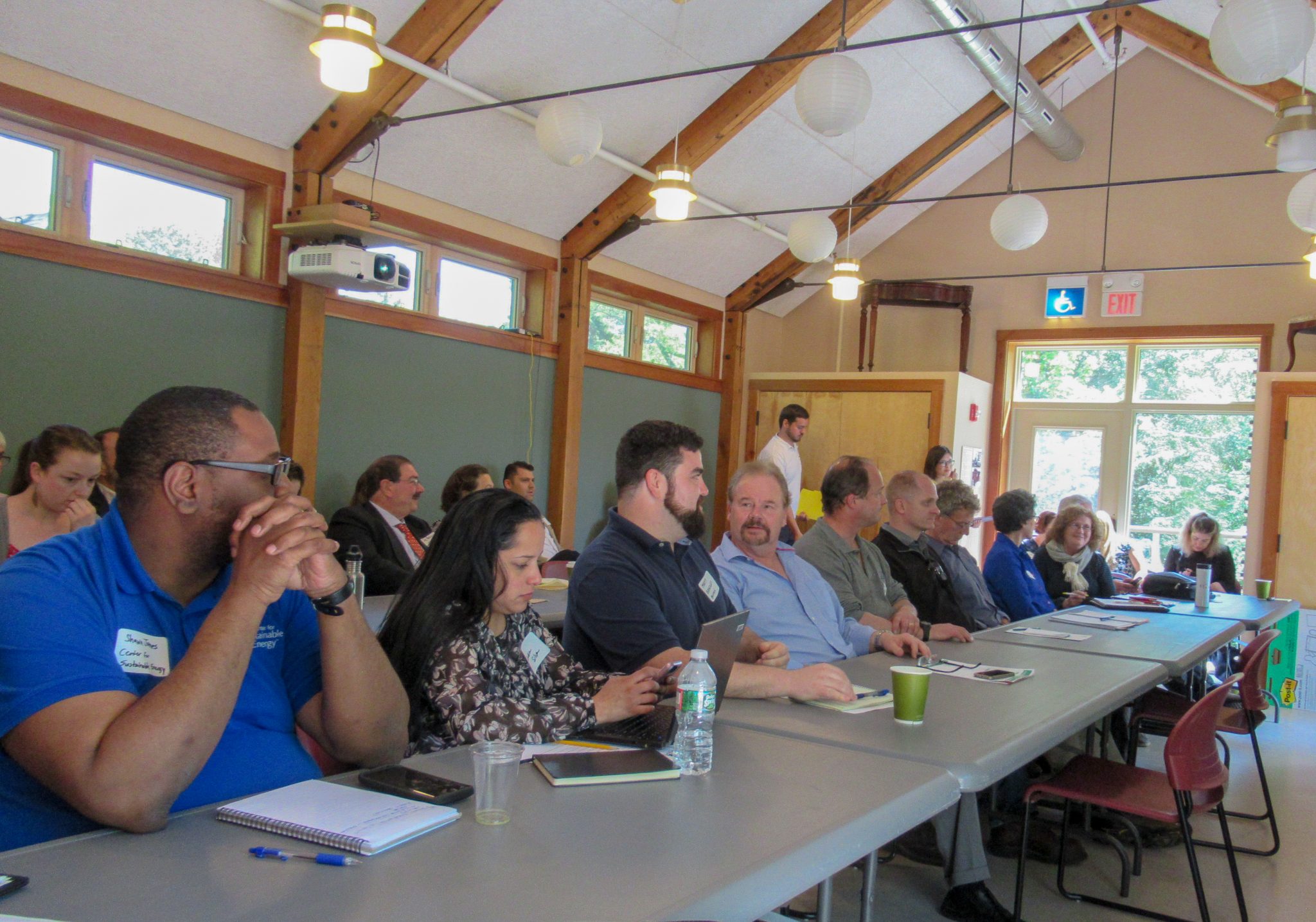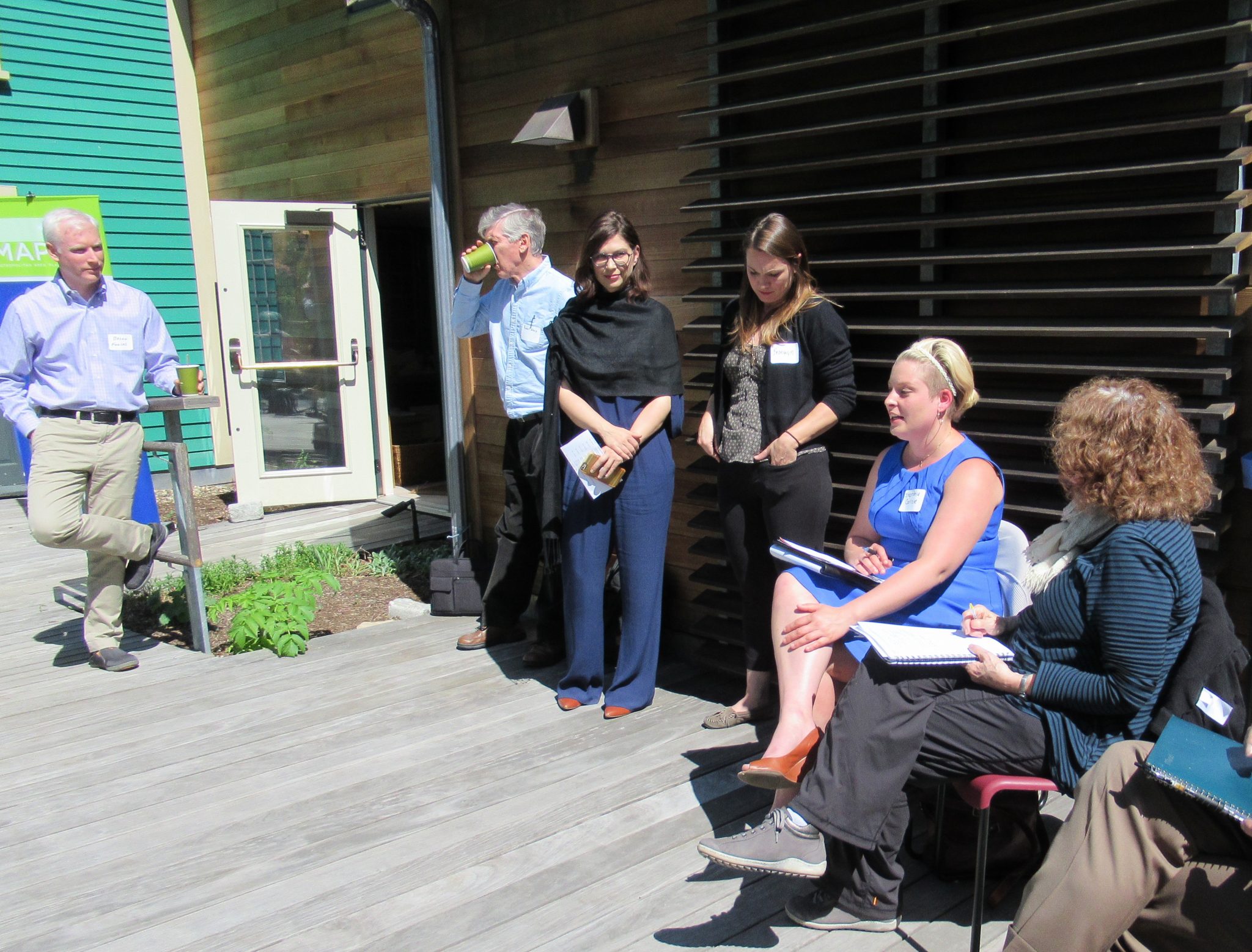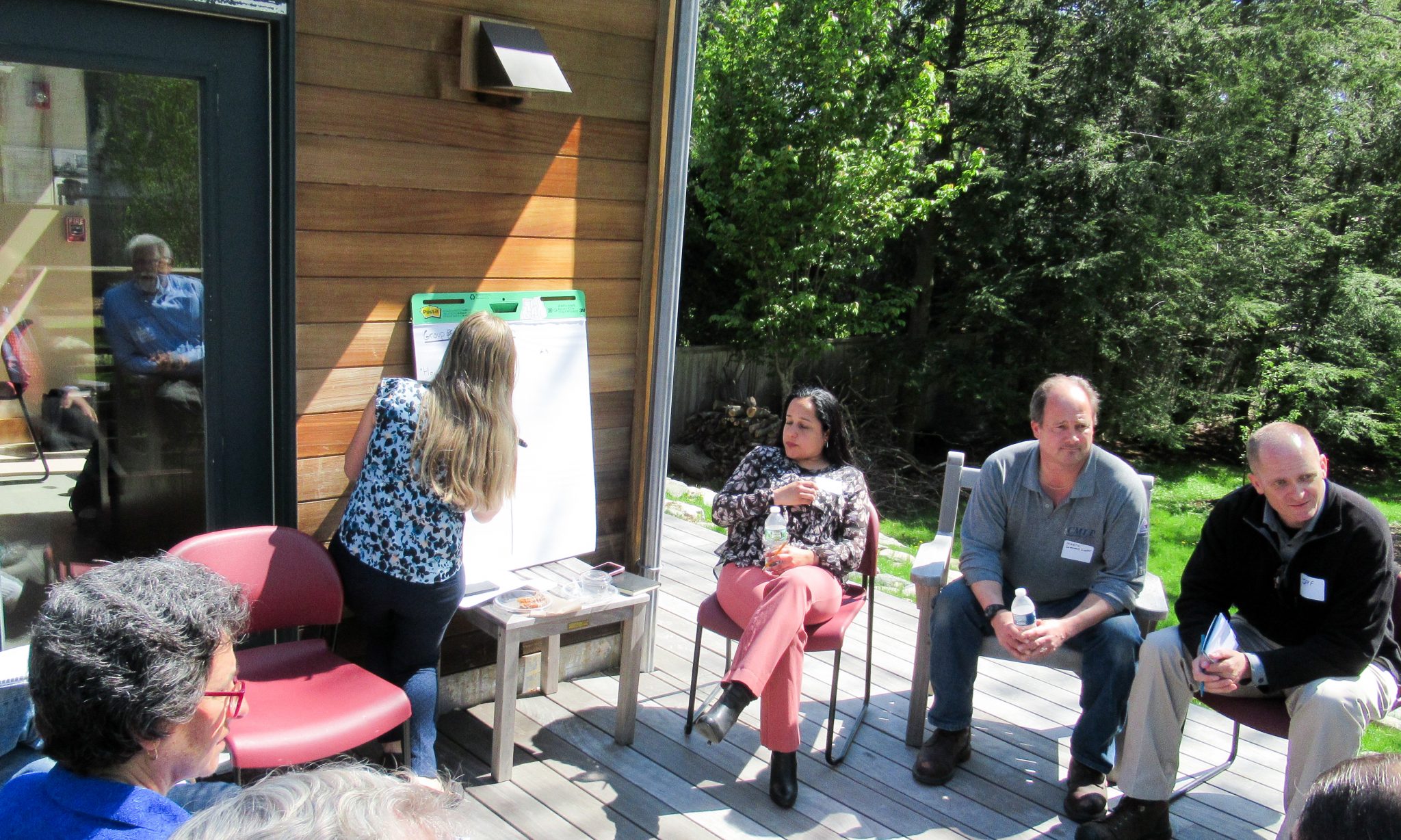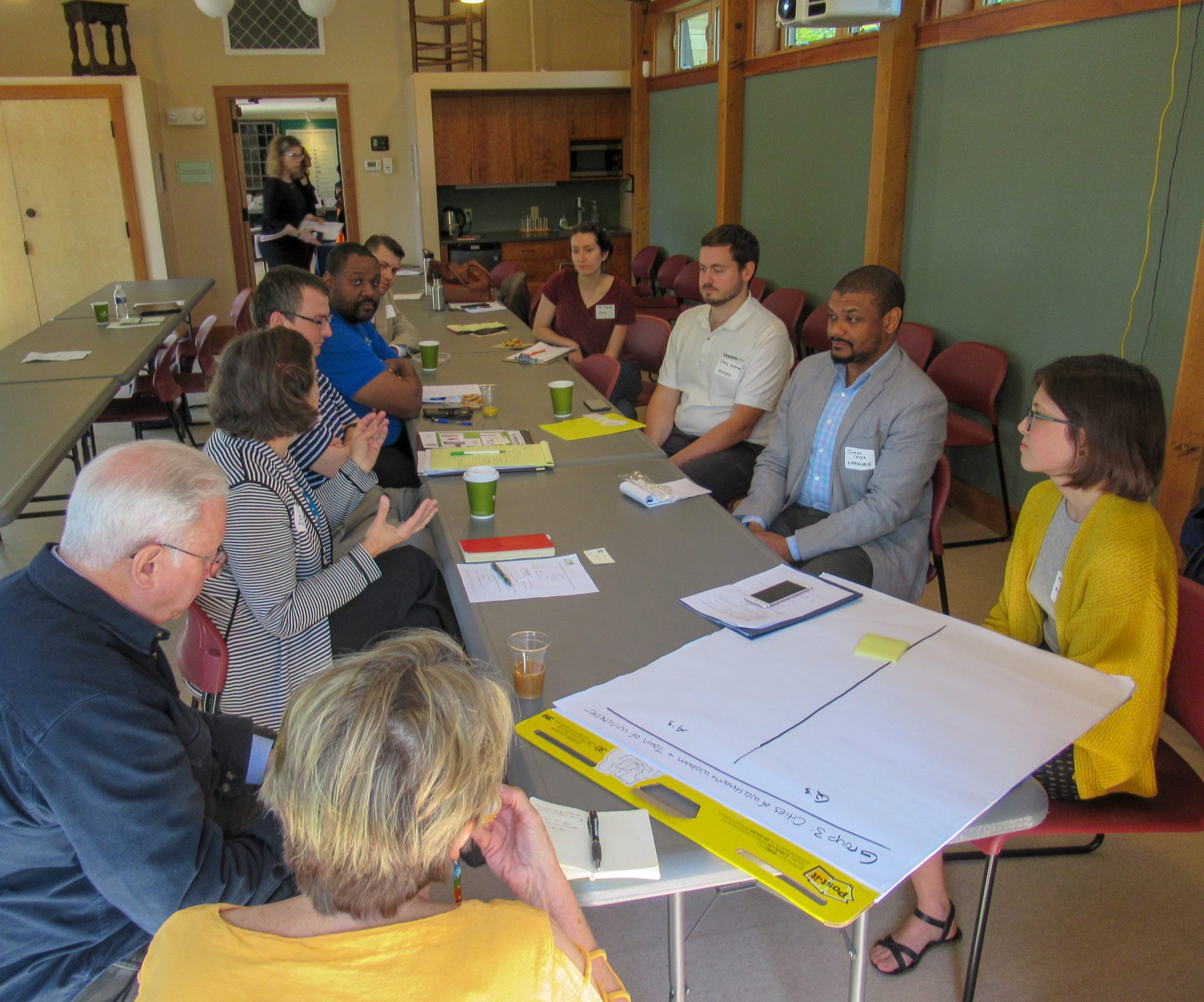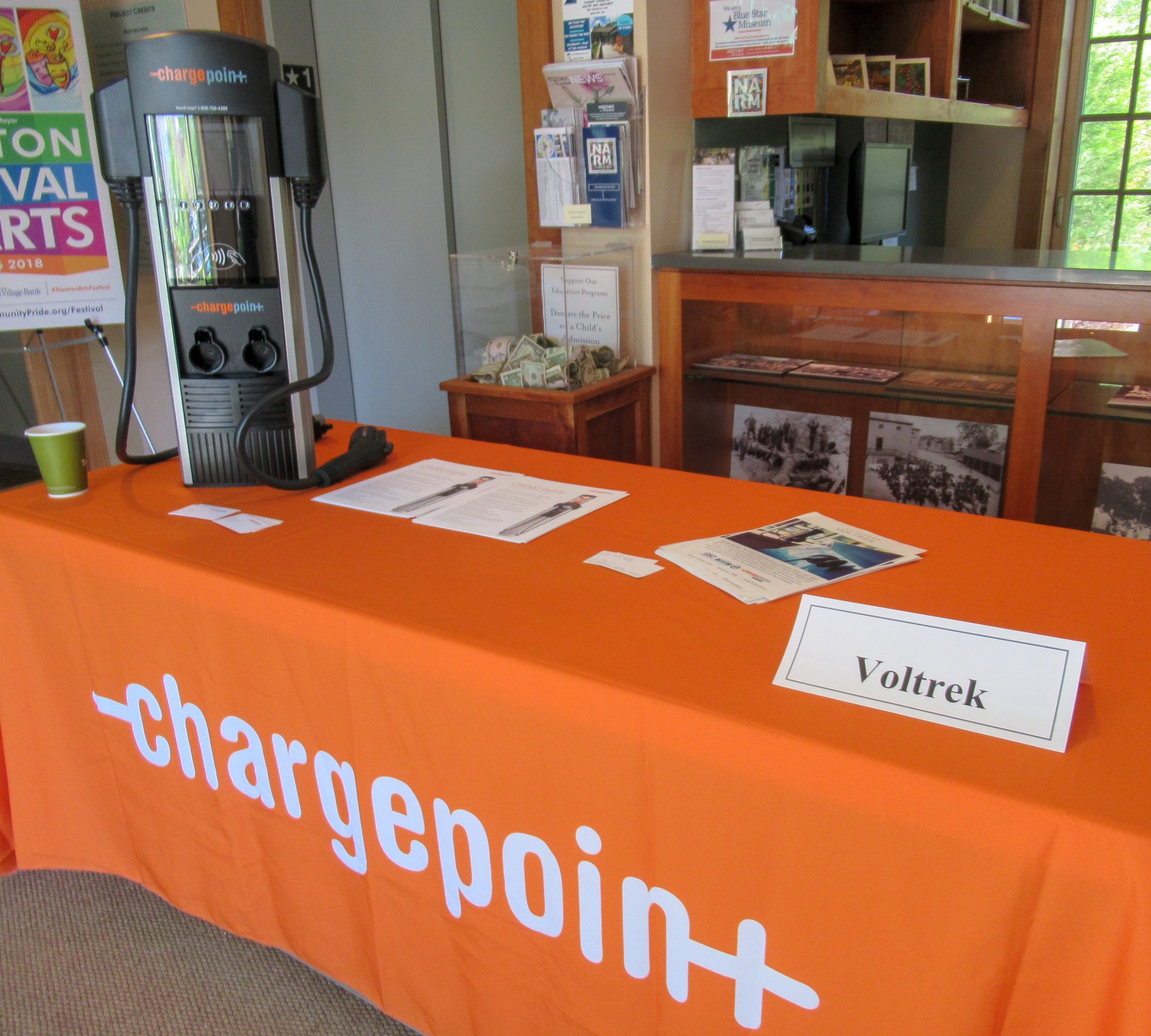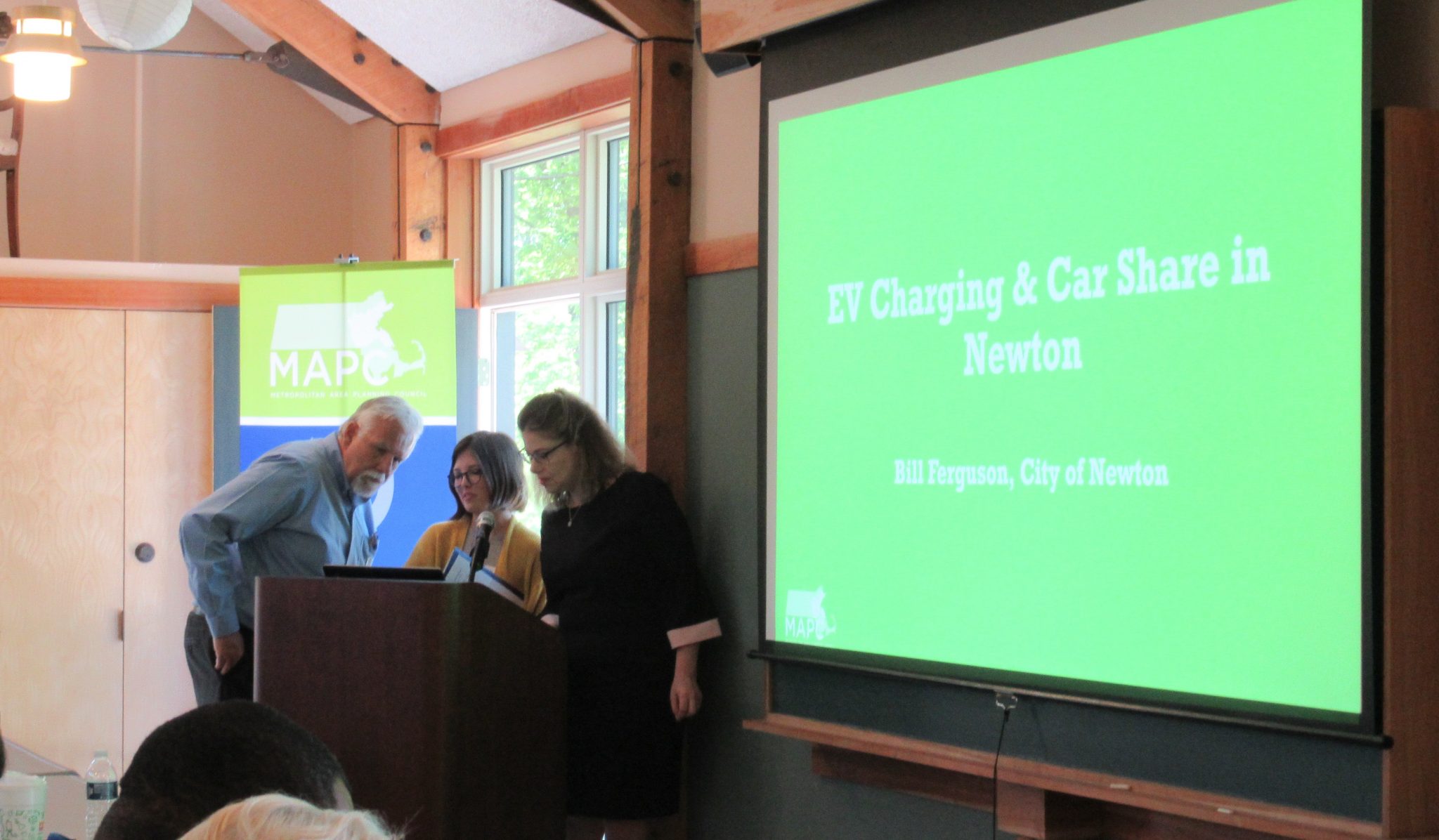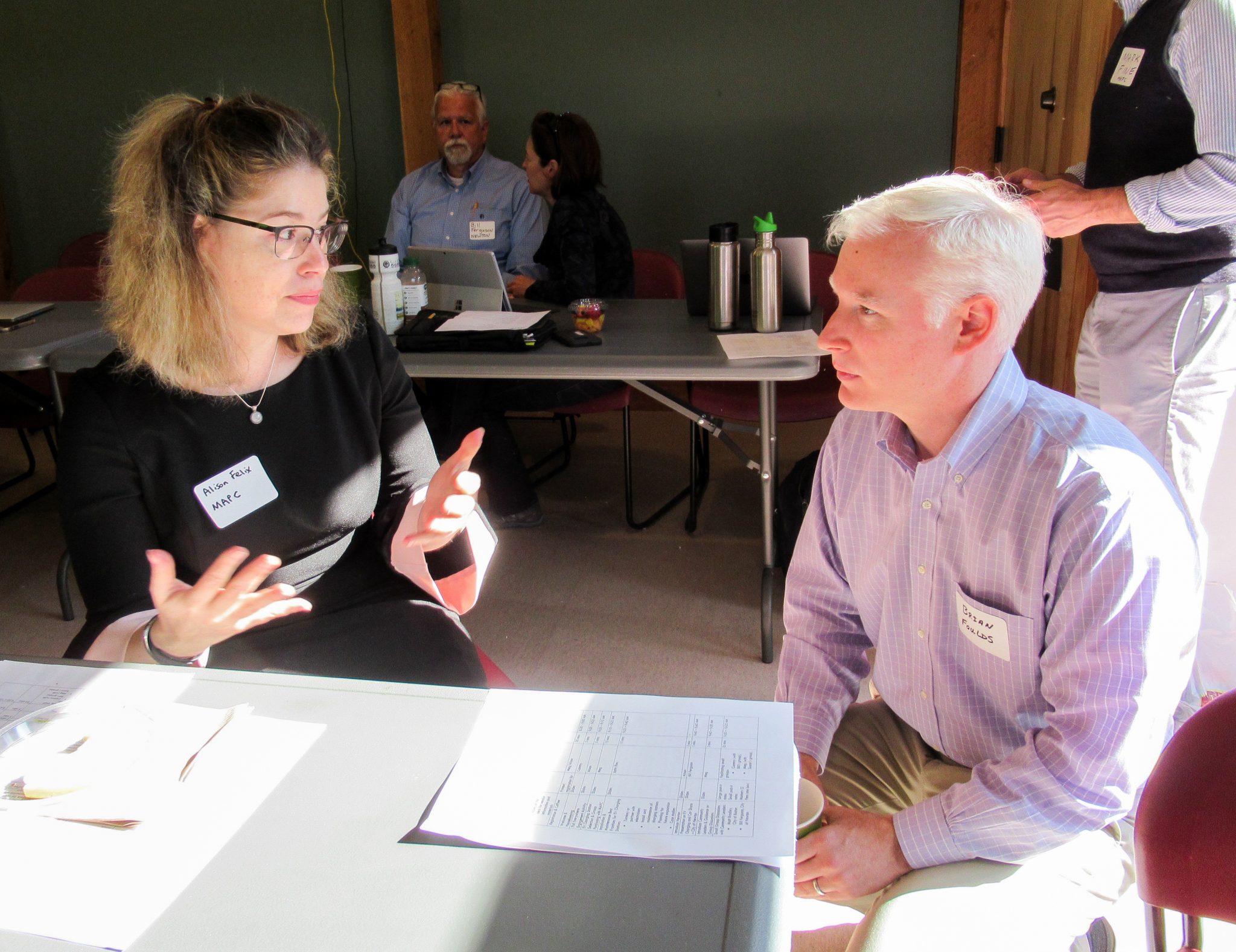Across the Commonwealth, residents are starting to make the switch from gasoline powered vehicles to electric vehicles. However, some remain hesitant to make the switch due to the lack of public charging stations available. One of the biggest fears that electric car owners have is not being able to find a charging station when they are running out of battery charge, also known as, “range anxiety.” Unlike gas stations, charging stations are limited in number and geographic availability across Massachusetts and the country.
Many cities and towns in Metro Boston are investigating the opportunity to install charging stations and support residents and their municipal fleets in adopting electric vehicles. However, taking the first step to figure out which type of charging station to purchase and where to install it can be a challenge.
To provide municipalities with the tools and information to make these decisions, MAPC’s Clean Energy team developed a Roadmap to Install EV Charging Stations and partnered with the City of Newton to host an electric vehicle (EV) charging station workshop that took a deeper dive into what to consider from procurement to installation and maintenance of EV charging stations.
Over 40 people attended the workshop in Newton early Tuesday morning on May 8th. Workshop attendees had the opportunity to learn, engage, and connect with EV charging station vendors, alongside municipalities, and leaders in the region that have experience installing charging stations.
MAPC’s Megan Aki, kicked off the workshop by laying out some key points that municipalities should consider when figuring out the type of charging station to procure: who needs to use the station (city/town employees, residents), how they will use the station (9-5 workday, overnight parking, re-charge midday, etc.), and where they will park (city/town hall lot, at home/workplace, service stations). All these factors play a role in deciding which level or type of charging station will be best fit for the needs of the community including where the station will be located so it can be accessible. She also discussed how municipalities can participate in MAPC’s Green Mobility Group Purchasing Program to save money by buying with other public fleets.
Justin Ries from ChargePoint, one of the world’s largest and most open EV charging networks, picked up the discussion by talking about best practices in both the installation and maintenance of EV charging stations offered by ChargePoint – three charging speeds and station options, commercial stations that offer branding and customization, 3G Smart Connectivity, a consumer interface that has functions like tracking energy usage, financials, and power.
Attendees were then divided into small groups to have conversations with community leaders that currently have electric charging stations installed. Groups had the opportunity to engage with the City of Boston (Matt Bradley), City of Newton (Bill Ferguson), the City of Woburn, Town of Waltham, and Town of Winchester (Susan McPhee) to discuss challenges and approaches to charging stations. The groups reconvened and the discussion concluded with vendor presentations by Chris Hermey from Verdek and Kathleen Connors from Voltrek.
Next Steps and Related Opportunities
At MAPC, we want to make sure municipalities have the support they need to feel confident purchasing and installing EV charging stations in their communities. This year, MAPC is expanding the Green Mobility Group Purchasing Program to include a pricing agreement for electric vehicle charging stations. MAPC intends to coordinate group purchases from vendors on the statewide contract, VEH102, on behalf of participating communities during July 2018. Communities interested in purchasing EV charging stations through MAPC’s Group Purchasing program should download and complete the SPECIFICATIONS FORM, and submit to Megan Aki by 5pm on June 15, 2018.

